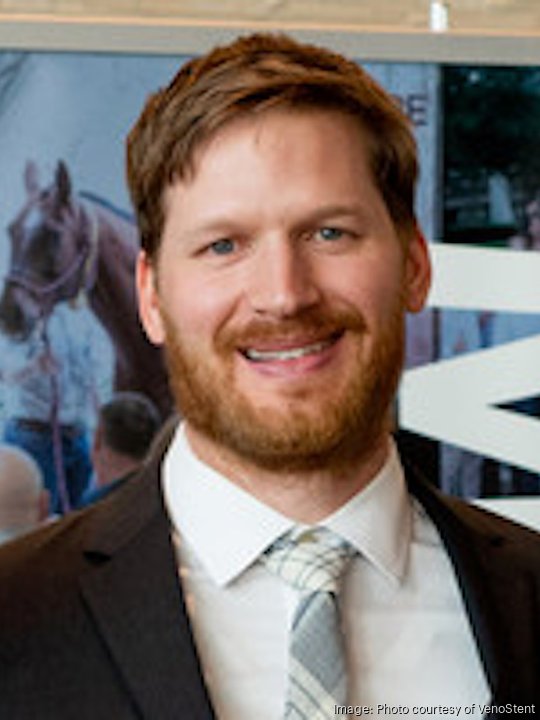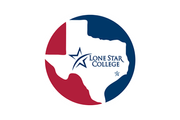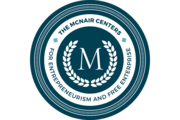
A Houston medical technology company has added new investors and closed its Series A funding round.
VenoStent completed the $20 million round thanks to an additional $4 million from Palo Alto, California-based Norwest Venture Partners. The company also received a $3.5 million Small Business Innovation Research grant from the National Institutes of Health, with the funding going toward design of a 200-patient trial.
Norwest General Partner Dr. Zack Scott, a surgeon trained at the University of Texas Health Science Center at San Antonio, and Dr. Ehi Akhirome, a physician scientist, are joining VenoStent as board observers.
“[Norwest] has an amazing amount of resources for any kind of startup company, whether you're early-stage or late-stage, and that's a great benefit to us,” Dr. Tim Boire, co-founder and CEO of VenoStent, told the Houston Business Journal in an interview. "Zack and Ehi themselves have a ton of experience in the medical device and biotech industries, and they're both surgeons by training."
The first part of the round was closed in late July, a few months after VenoStent secured Investigational Device Exemption status from the FDA. Charleston, South Carolina-based firms Growth Capital and IAG Capital Partners led the round.
Local investors in that round included the Texas Medical Center Venture Fund and Baylor University’s Baylor Angel Network. Others include Oakland, California-based Creative Ventures; Fort Worth-based Cowtown Angels; and Manchester, New Hampshire-based Alumni Ventures.
In May 2023, VenoStent secured Investigational Device Exemption status from the Food and Drug Administration. The classification means VenoStent can collect clinical data for its SelfWrap medical device through a trial known as the SelfWrap-Assisted ArterioVenous Fistula Study, or SAVE-FistulaS.
SelfWrap helps stabilize vein-artery connections created through surgery to improve the success rates of dialysis procedures. According to VenoStent, 5 million vascular access surgeries are conducted annually.
Although Boire had no timeline for when VenoStent’s trials would be completed, he said the company aimed to go commercial “in the near future.”
"The medical clinical need we're addressing includes people with failed kidneys, that need either dialysis or a transplant to sustain life, and they rely on dialysis to perform the jobs that their kidneys do," Boire said.
Patients in need of dialysis run into structural complications with the veins needed to transport bodily fluids during the surgery. SelfWrap helps secure those veins and strengthen them, according to Boire.
Norwest's Scott previously studied with UT researcher Dr. Julio Palmaz on vascular surgeries. He said that as health technology markets cooled down after 2022, Norwest had started looking at earlier-stage companies and what he described as “thematic” approaches to certain specialties of health care.
“Our biggest shift in how we approach the current market is that we are taking on more clinical-stage-type investments. Historically, we would have a balanced approach: 50% that were more in the commercialized stage, where they’re selling products, and 50% that were more development-focused,” Scott said. “We’ve definitely skewed more development-stage recently. We also have certain therapeutic areas we’re more focused on today, and cardiovascular peripherals have always been a very attractive area of investment.”
VenoStent has previously received funding from federal agencies such as the National Science Foundation and the National Institute of Health as well as major national startup investors such as Y Combinator.
VenoStent takes up residence at TMCi
In April, VenoStent completed its move into a 10,090-square-foot space in the Texas Medical Center Innovation building at 2450 Holcombe Blvd. Boire said the space would be used for manufacturing as VenoStent undergoes its trials.
Boire said that VenoStent had considered options at TMC’s new Helix Park campus, but ultimately decided that the costs were too much.
“What this new facility provides to us is a space to get the pilot scaled and to the point where we can do early commercialization sales,” Boire said. "Having it under one roof is of great benefit. Additionally, as an [FDA Class 3 medical device] company, we have to have an audit of our facilities, and it would not be possible to do that at JLabs."
The company was accepted into the Johnson & Johnson JLabs cohort at the TMC in 2018 and has an office presence at JLabs near the TMCi building. VenoStent was originally spun out of research from Vanderbilt University in Nashville.
After landing at JLabs, VenoStent was accepted into the TMCx accelerator program, developed from the TMC Innovation Institute. The company also won two prizes at the 2018 Texas A&M New Ventures Competition.
Sign up here for the Houston Business Journal’s free morning and afternoon daily newsletters to receive the latest business news impacting greater Houston.
This story has been updated to correct the spelling of the first name of Dr. Ehi Akhirome





